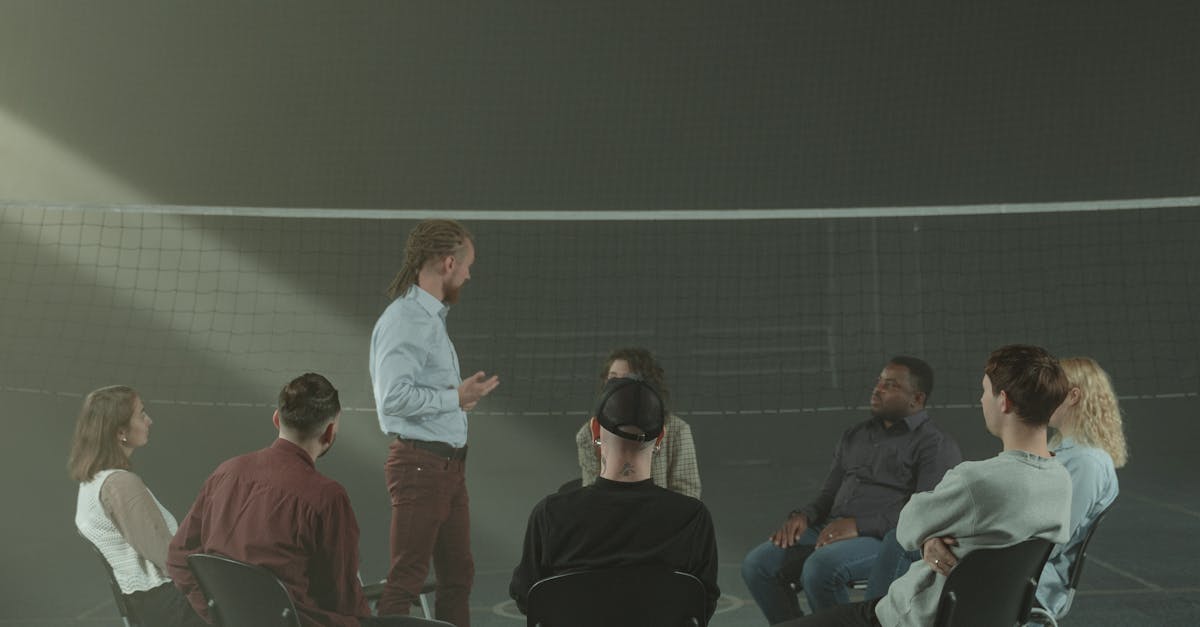
Table Of Contents
Utilizing Psychoeducational Groups for Skill Development
Psychoeducational groups are an integral aspect of group therapy, focusing on the acquisition and enhancement of various skills. By creating a structured environment that combines educational components with group discussion and activities, individuals can develop coping mechanisms and interpersonal skills. These groups are particularly beneficial for individuals seeking to improve their emotional regulation, communication abilities, and problem-solving skills within a supportive peer setting.
Through participation in psychoeducational groups, individuals can gain a better understanding of their emotions and behaviors while acquiring practical tools to manage challenging situations. These sessions often involve psychoeducation on topics such as stress management, effective communication, and self-care practices. By engaging in skill-building exercises and sharing personal experiences with others facing similar challenges, participants can enhance their emotional intelligence and develop a strong support network within the context of group therapy.
Building Coping Skills in Psychoeducational Groups
Building coping skills in psychoeducational groups is a fundamental aspect of group therapy. These groups provide a safe and structured environment for individuals to learn new strategies to manage stress, anxiety, and other challenging emotions. By exploring coping mechanisms together, participants can gain valuable insights and tools to navigate difficult situations in their daily lives.
In psychoeducational groups focused on building coping skills, facilitators often use evidence-based techniques such as cognitive-behavioural strategies, mindfulness practices, and relaxation exercises. Participants are encouraged to share their experiences, learn from one another, and practice implementing coping skills in real-world scenarios. Through mutual support and guidance, individuals in these groups can develop greater resilience and a more positive outlook on life.
Enhancing Social Skills Through Interpersonal Process Groups
Interpersonal process groups are designed to offer a supportive environment where individuals can enhance their social skills. These groups provide a safe space for participants to practice effective communication, active listening, conflict resolution, and emotional expression. Through interactions with others in the group setting, individuals can gain valuable insight into their relationship patterns and develop healthier ways of connecting with people. Group therapy aims to create a sense of community and foster a mutual understanding among participants, enabling them to build more fulfilling and meaningful relationships in their lives.
Moreover, interpersonal process groups can help individuals develop empathy, respect for boundaries, and assertiveness in their interactions with others. By engaging in role-playing exercises, group discussions, and feedback sessions, participants can learn to navigate social situations more confidently and authentically. This type of group therapy offers a platform for individuals to explore their interpersonal dynamics, gain self-awareness, and receive constructive support and encouragement from peers. In essence, enhancing social skills through interpersonal process groups can empower individuals to cultivate more positive and harmonious relationships in various aspects of their lives.
Building Healthy Relationships in Interpersonal Groups
Building Healthy Relationships in Interpersonal Groups
Effective group therapy can play a pivotal role in fostering healthy relationships among participants. Within the realm of interpersonal process groups, individuals can delve into their social dynamics, communication patterns, and emotional responses within a supportive environment. These groups provide a unique opportunity for members to explore and enhance their ability to form and maintain positive connections with others. By engaging in reflective activities and sharing personal experiences, participants in these therapy groups can gain valuable insights into their interpersonal interactions.
Furthermore, group therapy focused on building healthy relationships can assist individuals in developing essential skills such as active listening, empathy, and conflict resolution. Through structured exercises and guided discussions, members can learn how to navigate relationship challenges and cultivate meaningful connections with peers. The collaborative nature of interpersonal process groups encourages participants to practice open communication, establish boundaries, and cultivate trust within a safe therapeutic setting. Ultimately, by actively participating in these group sessions, individuals can work towards creating fulfilling and supportive relationships in their personal and professional lives.
Addressing Substance Abuse Issues in Therapy Groups
Addressing substance abuse issues within therapy groups is a crucial aspect of supporting individuals on their journey towards recovery. In these group settings, participants are provided with a supportive environment where they can openly discuss their struggles with substance abuse, share their experiences, and receive guidance from both professional therapists and peers who may have faced similar challenges. The group dynamics play a significant role in promoting accountability, encouragement, and a sense of community among members, which can be instrumental in fostering motivation and self-awareness throughout the recovery process.
Through group therapy sessions focused on substance abuse, individuals have the opportunity to explore the underlying factors contributing to their addictive behaviours and develop coping strategies to manage cravings and triggers effectively. Therapists often facilitate discussions on topics such as identifying high-risk situations, developing healthy coping mechanisms, and enhancing problem-solving skills to empower participants in making positive changes in their lives. By offering a combination of education, peer support, and structured interventions, therapy groups create a space where individuals can gain insights into their behaviours, build resilience, and work towards sustainable recovery from substance abuse.
RecoveryOriented Substance Abuse Treatment Groups
Recovery-oriented substance abuse treatment groups form a vital component of group therapy for individuals struggling with addiction. These groups prioritize the development of strategies and skills that promote long-term recovery and sobriety. With a focus on individualized treatment plans and a supportive group environment, participants in these groups have the opportunity to share their experiences, challenges, and successes as they navigate the journey towards healing and wellness. The structured nature of recovery-oriented substance abuse treatment groups allows participants to explore underlying issues that contribute to their substance use, while also providing a platform for accountability and encouragement from peers who understand the complexities of addiction.
In these therapy groups, participants engage in discussions, activities, and exercises that promote self-reflection, goal setting, and decision-making skills. Through a combination of evidence-based interventions and peer support, individuals in recovery-oriented substance abuse treatment groups are equipped with the tools necessary to cope with triggers, manage cravings, and maintain their sobriety. By fostering a sense of community and shared responsibility, these groups create a safe space where individuals can explore their emotions, beliefs, and behaviours in a supportive and non-judgmental environment. Group therapy underscores the importance of social connection and mutual understanding in the process of overcoming substance misuse and building a foundation for lasting recovery.
FAQS
What are the three types of group therapy?
The three types of group therapy include psychoeducational groups, interpersonal process groups, and substance abuse treatment groups.
How do psychoeducational groups help individuals in therapy?
Psychoeducational groups focus on skill development and education to help individuals learn coping strategies and enhance their understanding of specific issues.
What is the main goal of interpersonal process groups?
Interpersonal process groups aim to improve social skills and build healthy relationships through shared experiences and feedback from group members.
How do substance abuse treatment groups address addiction issues?
Substance abuse treatment groups provide a supportive environment for individuals to work on their recovery, learn coping mechanisms, and develop strategies to overcome substance abuse challenges.
Can individuals participate in more than one type of group therapy?
Yes, individuals may benefit from participating in multiple types of group therapy depending on their specific needs and treatment goals.
